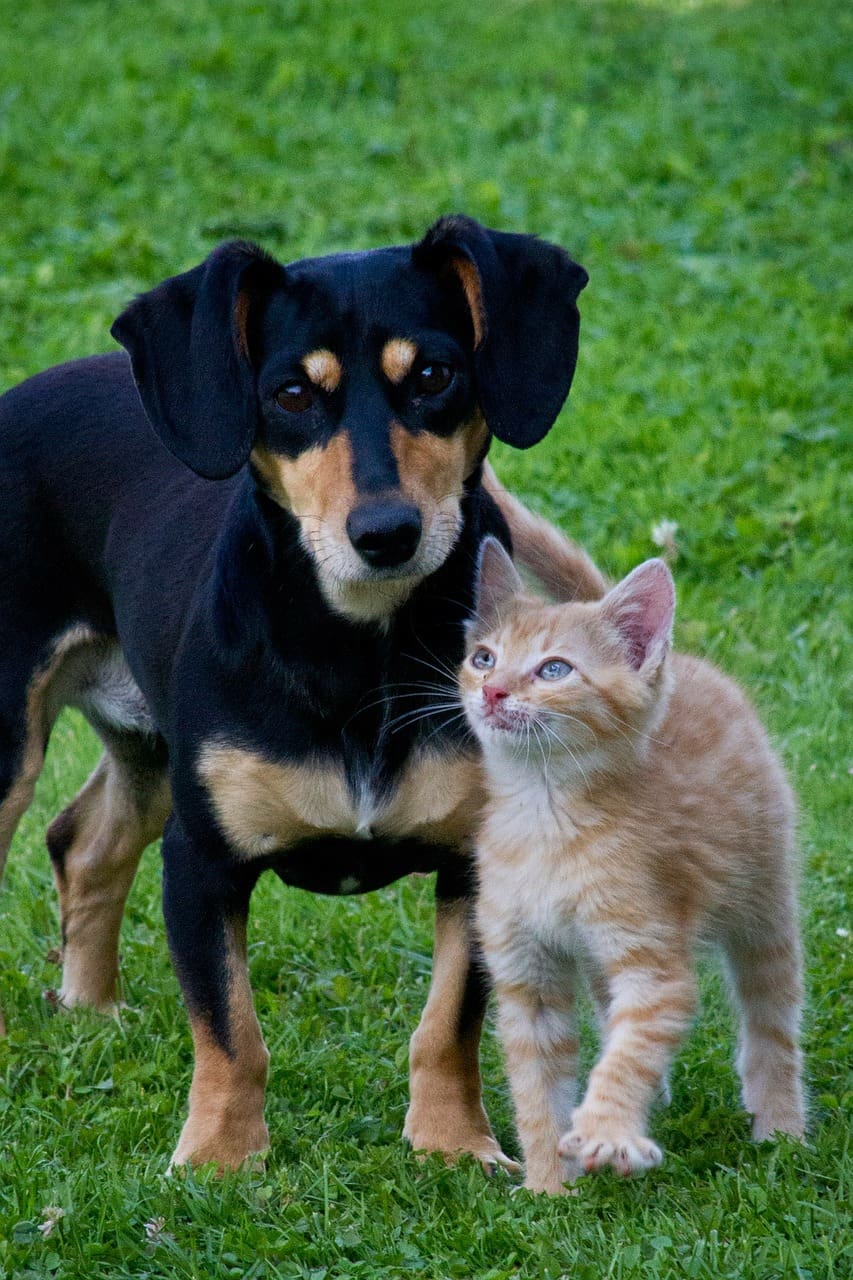Pet trusts were once seen as the eccentric indulgences of the wealthy, but today, they are recognized as a practical part of estate planning. In 2016, Minnesota became the last of the 50 states to legally recognize pet trusts. However, not all pet trusts perfectly reflect the owner's intentions. Let’s explore six famous pet trust cases and learn how to create a plan that truly protects your pets.
Lesson: Leaving an excessive sum to a pet can lead to legal challenges and family conflicts. It’s important to leave a reasonable amount based on the actual cost of care for your pet’s remaining years. Discuss any disinheritance plans with your attorney to make them as solid as possible.

Lesson: Using a trust helps maintain privacy regarding your estate’s details, preventing public scrutiny.
Lesson: Pet trust benefits can extend across generations, so ensure your estate plan clearly reflects your intentions for future pets.
Lesson: You can be creative in ensuring your pet receives proper care after your passing by designating trusted organizations or individuals to manage their care.
Lesson: Don’t assume someone will automatically care for your pet. Plan ahead by choosing a reliable caretaker and putting your wishes in writing.

Lesson: Ensure your financial plan aligns with your estate plan and closely monitor your advisors to protect your assets.
Protecting Your Pets with a Pet Trust
Establishing a pet trust is the most reliable way to ensure your pets are cared for after your death. If you haven’t yet made arrangements for your pets in your estate plan, now is the time. A Nevada trust attorney can help you set up a new pet trust or incorporate one into your existing plan. Contact us today to safeguard your pets' future.
Planning for your pet's future in your estate plan is essential to ensure they are cared for after you're gone. A common and effective way to achieve this is by setting up a pet trust, a legal tool that provides specific instructions and funds for your pet's care. However, many people make critical mistakes that can leave their pets vulnerable. Here are five common pitfalls to avoid when creating a trust and ensuring a comprehensive estate plan that protects your furry friend.

Estate planning isn't just about safeguarding the future of your human loved ones—it's also about ensuring that your pets are cared for if something happens to you. Many pet owners worry about what might happen to their animals if they are no longer around. This is where a pet trust can be invaluable.
A pet trust is a legal tool that can be included in your estate plan to ensure your pets are looked after according to your wishes. Without a plan, your pets could face uncertainty, and in the chaos that follows a death, they might even be overlooked or abandoned. By setting up a pet trust, you can avoid these scenarios and make sure your furry family members are well cared for.

When you decide to create a pet trust, there are three important choices you need to make:
You might assume that you’ll outlive your pets, but estate planning is about preparing for the unexpected. By including a pet trust in your estate plan, you ensure that your pets will be cared for, even if you’re not there to do it yourself. Don’t leave your pet’s future to chance—work with a Nevada trust attorney to protect what matters most to you.
Many pet owners in Nevada and across the U.S. overlook including their beloved pets in their estate plans. While some may have plans for their pets after death, few consider what happens if they become incapacitated. Planning for your pets through tools like pet trusts and pet wills can ensure your animal companions are well cared for, even during times of personal incapacity or after your passing.
Incorporating pets into your estate plan isn’t just a loving gesture—it’s essential for ensuring they receive the care they deserve, no matter what happens to you. Whether through temporary arrangements for a caregiver or long-term planning with a trust, protecting your pets legally guarantees they are treated as important members of your family.

Though some pet owners include pets in their wills, a pet trust offers more flexibility and control. A pet trust is a legal document that ensures funds are set aside for your pet’s care, with a trustee overseeing the process. The trust applies not only after your death but also during periods of incapacity. This feature helps protect pets if you become unable to care for them due to illness or disability.
All 50 states, including Nevada, allow pet trusts. In a trust, you can designate caretakers and specify detailed instructions for your pet's care, covering essentials like food, shelter, and veterinary attention. You can also include provisions for multiple pets or different species, ensuring they receive the appropriate resources.
While a pet will allows you to leave your pet to someone as part of your estate, it has several limitations. Wills only take effect after death, so they don’t cover incapacity situations. Furthermore, the person named to care for your pet in a will has the right to refuse, which could leave your pet’s future uncertain.
Naming alternate pet guardians in your will can help, but it’s also vital to recognize that many organizations, like shelters, may not be equipped for long-term care. This makes a pet trust a more reliable tool for securing your pet’s future.
Planning for incapacity is crucial because pets often end up in shelters if their owners become ill or incapacitated. According to reports, millions of pets enter shelters every year, with some facing euthanasia due to a lack of provisions for their care. A properly structured pet trust or pet will ensures that your animal is never left in limbo during such emergencies.
In addition to pet trusts and wills, a pet care power of attorney can help address care during incapacity. This legal document gives someone the authority to make decisions on your behalf regarding your pet. You can specify what types of care your pet should receive and who will oversee that care, ensuring your pet’s needs are met no matter your situation.
Compliments of Anderson, Dorn & Rader,
Written By: The American Academy of Estate Planning Attorneys
If you have a pet, you know firsthand the bond that can develop between humans
and animals. Many of us consider our pets part of the family. But have you
considered what would happen to your furry or feathered companion if something
were to happen to you? Over 500k pets are abandoned each year due to the death or
disability of their owner. These pets could have been protected with just a
little planning.
It is prudent to include your pet in your estate plan for a number of reasons.
First, you want to make certain there is someone designated to take care of your
pet in case of your death. Second, you want to provide clear instructions for
your pet’s care. Third, you want to leave sufficient funds to ensure that your
pet receives the best possible care.
Including your pet in your estate plan is a little different than including
one of your children. For one thing, pets are not people, so they cannot own
property. This means you cannot leave money or property directly to your pet.
Another issue that arises when incorporating your pet into your estate plan is
that communication becomes an especially high priority. You want to make sure the
person you designate to care for your pet after your death wants the job and
understands all of the responsibilities that come with the job.
There are two primary methods for ensuring your pet will be well cared for
after you are gone:
Outright Gift
One option is to leave your pet, along with a gift of money or property for the
care of your pet, directly to a family member or a friend. This is done using
your Will or Trust, and the caregiver receives the assets on the condition that
they be used for the care of your pet.
This option is simple and straightforward. It works best when you are confident
that your chosen caregiver is trustworthy and responsible, and when you have
clearly communicated your expectations and the details of your pet’s needs.
The problem with an outright gift for pet planning is that it provides no means
for monitoring your pet’s caregiver. It will be difficult to ensure that the
assets you leave behind are, in fact, being used to care for your pet. It will
also be difficult to ensure that your pet receives the level of care you
contemplate.
Pet Trust
Another option is to establish a pet trust. These trusts have a reputation for
being reserved for the rich and famous, but they’re actually gaining popularity
among average pet owners. Part of the reason for this increasing popularity is
that pet trusts allow you to have more control over your pet’s fate after your
death.
A pet trust is a written document with which you appoint a caregiver as well as a
trustee (the person who will manage the money for your pet’s care and keep an eye
on your caregiver’s actions). You use the trust document to specify the standards
the caregiver must adhere to, as well as the circumstances under which the
trustee will distribute funds to the caregiver.
With a pet trust, as with other trusts, you’ll also name a remainder beneficiary
– someone who will inherit the remaining trust funds after the death of your pet.
What if You Can’t Find a Caregiver?
If you don’t have a friend or family member who is willing to take care of your
pet in the event of your death, you still have options.
One alternative is to check with your veterinarian. You may be able to use the
outright gift option, explained above, to place your pet in their trusted hands.
If your veterinarian cannot provide long-term care for your pet, they may be able
to place your pet with a local family or work with an adoption agency to find
them a loving home.
Another alternative is to look for a pet retirement home in your area. These are
relatively new facilities, often operated by veterinary schools, and they can be
costly and difficult to locate. However, such facilities are one way to rest
assured your pet will be well cared for. The level of care provided by pet
retirement homes tends to range from high quality to luxurious.
As with other important estate planning decisions, it is wise to explore your pet
planning options with an experienced estate planning attorney. He or she can help
you pick the planning method that best meets your needs and make sure that all
the formalities are met, so that you can be confident your pet will continue to
enjoy a happy, healthy life after your death.
If you are one of the millions of Americans who considers a beloved pet to be part of the family, then you undoubtedly worry about what will happen to your pet when you are no longer here to take care of him or her. The good news is that with proper estate planning, you can provide for your pet’s care after your death by creating a pet trust.
A pet trust operates in the same basic fashion as any other trust. As the grantor of the trust, you are able to appoint a trustee and a beneficiary (your pet), as well as designate assets to fund the trust and establish rules regarding how the trust assets are to be used for the care of your pet.
The trustee of your pet trust may be the same person who is to have the day to day care of your pet, but does not have to be the same person. You may also choose to appoint a neutral party as the trustee, such as an attorney. As the grantor of the trust, you have the ability to decide things such as what the trust funds can be used for and how often distributions are to be made. You can be as specific or as general as you wish to be with the terms. For example, you may choose to dictate what type of food your pet is fed and what veterinarian is to be used ,or you may simply establish a disbursement schedule and depend on the caregiver to make all other decision.
By creating a pet trust, you are able to rest easier knowing that your pet will be well cared for even after you are gone.

When it is time to start planning for the care of your pet after your death, you have several estate planning options, ranging from provisions in your will, to a complicated trust.
Topics covered in this whitepaper include:
Click here to read the whole article or download the PDF.
When it is time to start planning for the care of your pet after your death, you have several estate planning options, ranging from provisions in your will, to a complicated trust. Learn more about the advantages and disadvantages of Nevada pet trusts in this presentation.
 A family pet is not only a friend for life, but your cat or dog may become as much a part of your family as any other member. As such, pet owners are understandably concerned about what will happen to their pets after they pass away. It is unfortunate that pets cannot simply be named as beneficiaries, because that would make pet planning so much easier. But, since pets cannot own property, you will need to establish an appropriate pet plan to protect the future of your family friend. Your estate planning attorney can guide you in this process, so you will know what to include in a pet plan.
A family pet is not only a friend for life, but your cat or dog may become as much a part of your family as any other member. As such, pet owners are understandably concerned about what will happen to their pets after they pass away. It is unfortunate that pets cannot simply be named as beneficiaries, because that would make pet planning so much easier. But, since pets cannot own property, you will need to establish an appropriate pet plan to protect the future of your family friend. Your estate planning attorney can guide you in this process, so you will know what to include in a pet plan.
What are my pet planning options?
There are two main components of every pet plan: the caregiver and financial support. The goal of your pet plan should be to appoint a proper caregiver to care for your pet and make sufficient funds available for that care. There are three basic types of pet plans, ranging from the formal to the informal; from simple agreements to complex trusts.
The general provisions of a good pet plan
A comprehensive pet plan allows you to provide detailed instructions for the care of your pet, including your preferences and your pet’s preferences. The ability to add any instructions you would like, gives you peace of mind for the future. In order to cover all of the necessary provisions, there are four topics that should be included in your pet plan.
Appointing a caregiver to care for your pets
Your pet plan needs to specifically identify the individual you want to provide care for your pet, after your death. It is also wise to name an alternative caregiver, in case your initial choice is unable to fill the role for whatever reason.
Instructions regarding your pet’s needs and routines
Describing your pet’s normal routines and certain preferences, such as type of food, favorite toys, etc., can ensure your pet’s continued happiness. It may also be important to include information regarding your pet’s veterinary care, pre-existing medical issues, dietary restrictions, and the like.
Source of funding for the care of your pet
Establishing a source of funding for your caregiver to use in providing care for your pet is obviously a crucial component of a pet estate plan. Your estate planning attorney can help you to estimate the amount of funds needed to cover your pet’s expenses. This sum of money should be placed in trust, so that the funds can only be used for that purpose. Many clients also include instructions on what should be done with any funds that may be remaining after your pet’s death.
Appointment of a trustee over the funds
The role of the trustee in pet planning is to ensure that your instructions are being followed and that the money you set aside for your pet’s care is being used only for that purpose. The trustee can be the same individual you select to be the caregiver, or it can be a separate individual, if you would be more comfortable with a system of checks and balances.
If you have questions about creating pet plans, or any other pet estate planning needs, please contact Anderson, Dorn & Rader, Ltd., either online or by calling us at (775) 823-9455.
 Planning for the future of your beloved family pet should be an important part of your overall estate plan. There are several options for including the proper provisions in your estate plan, to provide for your pet’s lifetime care after your death or incapacitation. The most common options are pet trusts and pet care agreements. However, you can also choose another simple method: wills used in pet planning.
Planning for the future of your beloved family pet should be an important part of your overall estate plan. There are several options for including the proper provisions in your estate plan, to provide for your pet’s lifetime care after your death or incapacitation. The most common options are pet trusts and pet care agreements. However, you can also choose another simple method: wills used in pet planning.
What are my choices for pet planning?
A pet trust creates an agreement with a trustee you select to manage your pet’s care and make sure your instructions are followed. This method can be more expensive and complicated to set up, but it is legally enforceable. More commonly, a pet provision will be placed in your living trust. Adding provisions for your pet in your will is a possibility, but is essentially unenforceable.
Pet provisions in wills are unenforceable
Wills are very common, very useful estate planning instruments. However, they are not very effective when it comes to planning for your pet. This is generally because the provisions you include regarding your pet are not legally enforceable without creating a testamentary trust which would require the supervision of a court for the remainder of the pet's life. Pets are considered, under the law, to be personal property. Therefore, once they are distributed to the beneficiary you choose to care for them, that person has the discretion to do what they want with the pet.
In other words, you have no control over what your beneficiaries do with the property they receive. Once the pet becomes their property, the caregiver is not legally required to keep your pet. The same is true for any money you leave behind for the care of your pet. Simply including provisions in your will could mean that your pet will be turned over to a pet shelter. There are no guarantees.
Wills do not provide for immediate protection
Even if you are certain that the caregiver you have chosen will take great care of your pet, you must consider that the protection of your pet, under the will, is not immediate. Wills must go through the probate process before the property can actually be distributed. This would include your pet. So, until that process is completed, the will does not provide any protection for your pet. If you choose to use this method, be sure to discuss with your personal representative, alternative care for your pet during that interim period.
Another issue to consider is the fact that a will cannot provide protection for your pet if you simply become incapacitated. A will only becomes effective upon your death. So, separate arrangements must be made to provide care in the event you are unable to do so. This is a benefit of having a pet trust or pet protection agreement in place.
Although there are some aspects of a will that may not make it the best option for pet planning, a will can still be used in combination with a pet trust or a pet provision inside a trust, to provide the best plan for the future care of your beloved pet.
If you have questions regarding pet provisions in a will, or any other pet estate planning needs, please contact Anderson, Dorn & Rader, Ltd., either online or by calling us at (775) 823-9455.
To learn more, please download our free Nevada pet trusts report here.
 Planning for the future of your pet may be as important as any other part of your estate plan. Basically, there are three estate planning documents that can be used specifically for pet owners. Provisions can be included in a will, which give the pet to a chosen caregiver along with funds to support the pet. A pet trust allows a trustee to oversee the care of the pet and ensure that the owner’s instructions are being followed. Finally, a pet protection agreement is another legally enforceable document, which provides essentially the same protection as a pet trust. So, when it comes to pet planning, you may want to compare wills vs trusts, in determining which method to use to protect the future of your pet.
Planning for the future of your pet may be as important as any other part of your estate plan. Basically, there are three estate planning documents that can be used specifically for pet owners. Provisions can be included in a will, which give the pet to a chosen caregiver along with funds to support the pet. A pet trust allows a trustee to oversee the care of the pet and ensure that the owner’s instructions are being followed. Finally, a pet protection agreement is another legally enforceable document, which provides essentially the same protection as a pet trust. So, when it comes to pet planning, you may want to compare wills vs trusts, in determining which method to use to protect the future of your pet.
The disadvantages of using a will for pet planning
Contrary to popular belief, your pet’s future may not be properly protected simply by mentioning them in your will. First, any instructions you include in your will, pertaining to your pet, are not legally enforceable, unless you provide a testamentary trust that has to be enforced by annual reports to the court. The purpose of a will is, essentially, to distribute assets. Once your pet is distributed to the person you choose as caregiver, that pet becomes his or her property. However, the caregiver is not obligated to keep or care for the pet. The same is true if you leave specific funds to the caregiver for the purpose of caring for the pet. The will cannot force the beneficiary to use the funds in any specific way.
Another problem with wills is that their terms are not put into effect immediately. Wills must go through probate, which is a lengthy court proceeding. With only a will, a special hearing establishing the caretaker's right to provide for the care of your pet during that waiting period before the final settlement of the estate may be necessary. Also, wills cannot provide for the care of your pet in the event you only become incapacitated, because wills only become effective upon your death. These inherent problems with wills do not mean that a will should never be used for pet planning. Instead, pet provisions in a will need to be supplemented by a pet trust or a pet protection agreement.
The benefits of pet trusts in pet planning
Pet trusts provide better protections and have more advantages than using a will alone to plan for your pet’s future. First, a trust can be drafted to become effective upon the owner’s death, as well as during the owner’s lifetime. This means that, in the event the owner becomes incapacitated, there will be provisions for the pet’s care that go into effect immediately.
One of the most important benefits of a pet trust is the ability to control the disbursement of funds for the pet’s care. You can appoint a trustee, separate from the guardian, who is responsible for investing and distributing the funds. The trustee can ensure that the instructions you provide in the terms of the trust are followed by the guardian. With these extra protections, the benefits of a trust over provisions in a will, are clear.
If you have questions regarding pet trusts, or any other pet planning tools, please contact Anderson, Dorn & Rader, Ltd., either online or by calling us at (775) 823-9455.
 A pet protection agreement is a document that allows you to decide ahead of time who will take care of your pets and exactly how they will be cared for. In Nevada, it can be a contract between you and a caretaker, a stand-alone pet trust or a provision in your own revocable living trust. The Agreement allows you to name a caretaker and specify all of the terms of your pet's care you desire. Pet protection agreements can become effective upon your death, or in the event of your incapacity. There are many options as to the terms that can be included in a pet protection agreement form. The choice is yours.
A pet protection agreement is a document that allows you to decide ahead of time who will take care of your pets and exactly how they will be cared for. In Nevada, it can be a contract between you and a caretaker, a stand-alone pet trust or a provision in your own revocable living trust. The Agreement allows you to name a caretaker and specify all of the terms of your pet's care you desire. Pet protection agreements can become effective upon your death, or in the event of your incapacity. There are many options as to the terms that can be included in a pet protection agreement form. The choice is yours.
Choosing a Caretaker
In addition to identifying yourself and your pets, you must choose someone to serve as the caretaker for your pet. That person will be ultimately responsible for the care and well-being of your pets, if you become unable to provide that care yourself. By signing the pet protection agreement, the caretaker becomes legally bound by its terms and makes the document legally enforceable. It is wise to also include the identity of a successor or alternative pet caretaker, in case your first choice is unable to take on the responsibility for any reason. You can decide to choose either an individual or an organization to serve as caretaker.
Identifying an organization of last resort
In the unlikely situation that neither the pet caretaker nor the successor caretaker is willing or able to care for your pet, the only other option would be to deliver the pet to a shelter. In that case, you can still identify in your pet protection agreement, or trust which organization that should be. You can also specify whether you want the shelter to find a temporary or permanent home for your pet, or simply choose what is in the pet’s best interest.
Leaving funds for the financial support of your pet
It is recommended, for the benefit of the caretaker and your pet, that you provide a source of financial support or your pet’s care. This is optional, of course. If you do choose to leave funds or property to support your pet, you should consider the number of pets you have, their ages and life expectancy, healthcare and medication needs, lifestyle and socialization, daily routines, food and diet and your pets’ preferences. The financial elements that should be planned for include the funds needed for your pet’s overall care, compensation for the caretaker, and how the funds will actually be provided for. Finally, it is a good idea to identify beneficiaries to receive any remaining funds left after the pet passes away.
Choosing a Distribution Representative
Some pet owners choose to identify someone other than the pet caretaker to be responsible for the funds. This person is typically referred to as the “distribution representative” in a contract, or the trustee, in a trust. This person holds on to the funds and then disburses them to the caretaker as needed. Otherwise, the pet caretaker can act in both offices and be responsible for handling both the pet and the funds.
Medical treatment and end of life care
Providing information relating to your pet’s medical conditions and required medications is just as important as including community of care information. Contact information for the animal hospital or veterinarian’s office you typically use is a good idea. Your wishes regarding your pet’s end of life care should also be addressed. State whether you want your pet to be euthanized, according to local laws, and your choices regarding final disposition.
If you have questions regarding pet protection agreements, trusts, or any other pet planning needs, please contact Anderson, Dorn & Rader, Ltd., either online or by calling us at (775) 823-9455.
When you own a dog or a cat (or any other type of pet) as a senior citizen you gain a lot of benefits. The companionship that a pet can provide can be priceless to a person who may be experiencing a bit of loneliness. Pets provide hours of free entertainment, and they can help to keep you active as you endeavor to give your pet adequate exercise.
At the same time, you do have to concern yourself with the possibility of passing away while your pet is still alive. Many people wonder exactly how they should proceed to make sure that their pet is provided for, so we have prepared a report that answers your questions.
Our report is available to you for download absolutely free of charge. If you want to obtain answers to the questions you may have about pet planning simply click this link and complete the form:
Nevada Pet Trusts
Creating a pet trust for the benefit of your animal companion will give you peace of mind knowing that your friend will be cared for even after you are gone. There will be money set aside for your animal's care, and you can leave behind instructions with regard to exactly how you want the pet cared for after your passing.
If there is anything left over in the trust after the pet dies these funds would be inherited by a beneficiary that you name when you create the trust.
We encourage you to download the free pet planning report, learn about pet trusts, and ultimately take action for the well-being of your best friend on four legs.
Life is precious and longevity is welcomed by most, but there are also some challenges that go along with it.
When you live to an advanced age you may outlive your spouse, siblings and extended family members and friends. If you are long retired you probably don't have regular interaction with coworkers. As a result, loneliness can set in.
If you find yourself in this position you may be able to fill the void by adopting or buying a dog, cat or other pet. In one fell swoop you have a best friend for life who will provide you with all sorts of benefits.
Along with the companionship you also have a reason to get more exercise, which can be great for your physical and mental health. Plus, you have an innocent and vulnerable animal depending on you, which can provide you with a sense of purpose that really adds something to your life.
Seniors who question whether or not they could handle a pet, physically, can select a smaller breed. If you were to adopt a dog, for instance, that is under 25 pounds you would likely have no physical problem.
When it comes to providing for the pet after you pass away you should consider the creation of a pet trust. If you fund the trust adequately and select the right trustee and caretaker, your pet will be set for the rest of its life even after your passing.
If you would like to learn more about pet trusts and other pet planning possibilities, simply take a moment to pick up the phone to arrange for a consultation with a qualified Reno NV estate planning lawyer.
If you are like millions of Americans, you probably own at least one pet. Have you taken the time to consider what will happen to your pet when you die? If you haven’t, now is the time to do so before it is too late.
When you die, your assets will all be secured until your executor or personal representative has the chance to inventory them and file the proper documents with the probate court. But what about your pet? Someone needs to look after your pet immediately after you die. A well meaning loved one may step in for a few days, but what happens after that? Who will pay for his or her care? Sadly, thousands of cats and dogs end up in shelters each year because their owner failed to make plans for the animal in the event of their death. You can ensure that your beloved pet is not one of these animals by creating a pet trust.
A pet trust takes all the guesswork out of your pet’s future after your death. Not only can you appoint a trustee whose job it is too ensure that the pet is well cared for, but you can also leave behind sufficient funds that are earmarked just for your pet to cover the cost of his or her care. Don’t take any chances with your pet. Take the time now to create a pet trust and give both you and your pet some peace of mind.
Setting aside money for someone to care for your pets after you’re gone is not only for the rich and famous. Creating an estate plan that includes your pet should be the typical practice for all animal owners. You can make sure when someone takes care of your best four-legged friend after you pass away, you are not creating a financial burden. A pet trust must be done right, so be certain to consult with your estate planning attorney. Your attorney can recommend a proper estate plan that includes your pets.
Although creating a pet trust may seem like the most obvious way to care for your pet, you can make sure your beloved pet continues receiving proper care after you’re no longer around by creating a conditional Will. Your estate planning attorney can help you determine whether creating a pet trust or a conditional Will would better accommodate your individual needs.
A pet trust is a written document that you create while you are alive. To establish a valid trust, you need to fund it and appoint a trustee. Most states allow their residents to establish pet trusts for the benefit of their pets. A conditional will allows you to place a condition on an heir’s right to receive an inheritance. Typically, the condition you place on your heir is that he or she must take care of your pet to be able to receive the inheritance. Speak with your estate planning attorney about leaving a conditional bequest to a trusted friend or relative.
Pet Trusts and Conditional Wills: Ways to Include Your Pet in Your Estate Plans
Unfortunately, stories of Marines returning home from combat are not uncommon. Likewise, stories of dog owners who form a bond with their pet are also not uncommon. A story, however, that combines the two has moved thousands to get involved and lend support.
Just as law enforcement officers are sometimes paired with a canine partner, military personnel can also be paired with a canine partner. Former Marine Cpl. Megan Leavey, 28, and her military service dog named Sgt. Rex completed over 100 missions together during two six-month tours in Iraq. Upon returning home in 2007, Leavey realized that she could not imagine not having Rex with her in her civilian life. Leavey wanted to adopt Rex; however, adopting a military service dog is far from an easy task to accomplish. Leavey refused to give up her mission. Eventually, her story went public and garnered the support of U.S. Senator Schumer as well as over 21,000 people who signed an online petition asking for Leavey to be given permission to adopt Rex. Her efforts finally paid off -- Leavey was given permission to adopt Rex and they will soon be reunited.
If you have a pet to whom you are equally attached, make sure you think about him or her when you create your estate plan. Just as you create a trust for a family member, you can create a pet trust for your pet, thereby ensuring that he or she will be provided for in the event you are no longer here to do so yourself.
Owning a dog is rewarding in a number of different ways, and for seniors a dog could provide a very welcome companion at a time when loneliness can be an issue. There is no replacing your family of course, but for many people, dogs are indeed man's best friend. You may find that a canine in the household will uplift your mood and perhaps even provide you with protection.
If you are a dog owner you should consider who would be caring for your pet if you were to pass away before the animal. This is obviously a serious consideration for senior citizens who own pets, but it is also important for anyone who owns an animal just as a precaution because life is uncertain at any age.
Your first task is going to be choosing a capable caretaker. It is very possible that a particular person will immediately come to mind. You may have a friend or family member that knows the pet well and who already has somewhat of a relationship with the animal.
Once you determine who would become the pet's caretaker in the event of your death you have to consider the financial side of things. You can provide financial resources to the caretaker by giving this individual a direct inheritance earmarked for the pet's care. A better option, however, would be to create a pet trust for the benefit of your dog. Doing so will keep your pet from becoming a burden to those left to care for it.
If you have any questions about pet planning, simply take a moment to arrange for a consultation with a good Northern Nevada estate planning lawyer.




